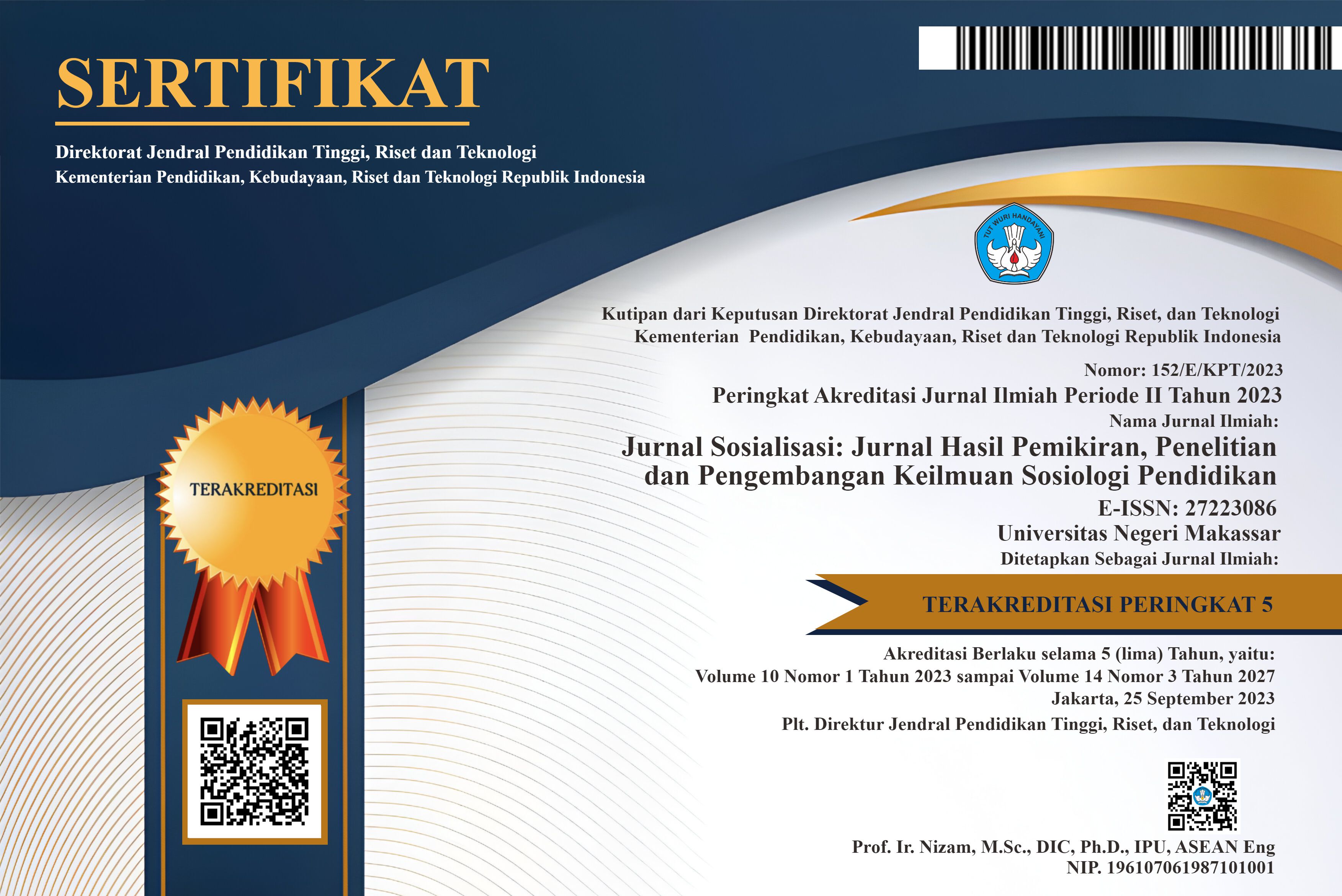THE IDEA OF THE GOOD LIFE IN ARISTOTLE AND CONFUCIUS
(1) University of Ibadan
(2) University of Ibadan
(*) Corresponding Author
DOI: https://doi.org/10.26858/sosialisasi.v0i1.14529
Abstract
Man, by nature, desires to live a good and happy life. But often times, the enduring quest for the blissful and delightful, eludes man. This constant questing and concurrent yearning make man restless, until his hopes and aspirations of the good or happy life, are crowned with an éclat. But, can man ever attain or realize this feat in the society? Is the idea of the good life, a mirage, a myth or reality? Even more seriously, what does the good life really entail? Is it predicated on material things, that is, on the mundane? Or is the good life, a kind of utopia, an ideal that seeks to bring to the glare of publicity, the “oughts” of life as the case may be? Since the idea of the good life is something well-defined, does it also imply that there is such a thing as the bad life? If, such exist, what would it consist of? Armed with these cogitations, this paper, attempts an expository-comparative study of the good life, its constitutive elements and its attainability in the thoughts of two distinguished philosophers: Confucius (in the East) and Aristotle (in the West).
Keywords
Full Text:
PDFArticle Metrics
Abstract view : 309 times | PDF view : 46 timesRefbacks
- There are currently no refbacks.

This work is licensed under a Creative Commons Attribution 4.0 International License.


































